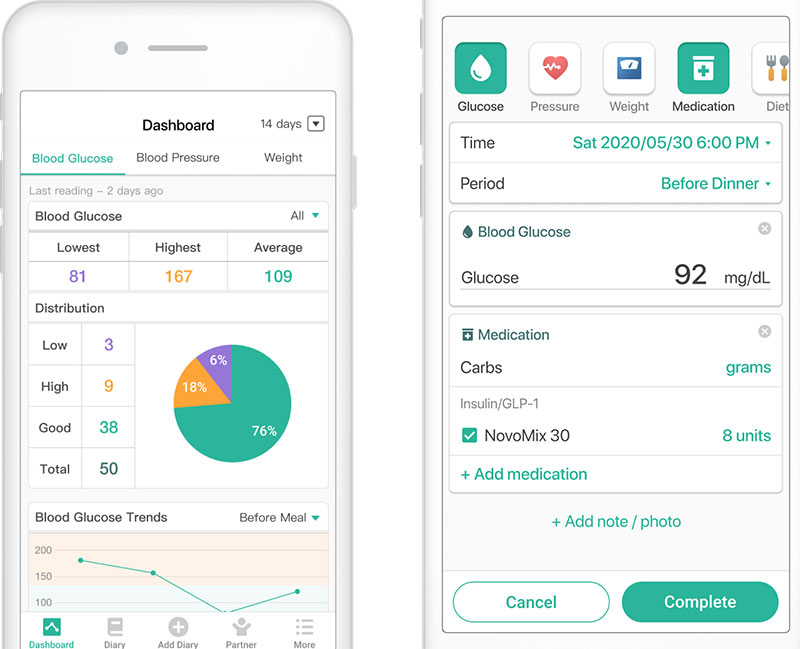Wearing Fitbit devices with Health2Sync, the number one diabetes management app in Taiwan has been clinically proven to help both users and healthcare providers to control and better manage the symptoms of Type 2 diabetes, according to a study was conducted with four of Taiwan’s leading diabetes clinics.
Related Fitbit and Solera Health Expand Collaboration to Reduce Type 2 Diabetes Risk
Results from the study in Taiwan revealed an improvement in patients’ health conditions, with participants recording higher levels of physical activity, reduced HbA1C, fasting blood glucose and LDL-C, and higher blood glucose measurement frequency, Fitbit said in a press release.
“We are thrilled to see such optimistic results in the clinical study. We believe that innovations in Fitbit wearable devices and Fitbit health solutions have a major role to play in the global effort against diabetes – whether it is in reducing the onset of diabetes, or helping patients to better manage their condition – and we look forward to further expanding on our partnership with Fitbit,” said Ed Deng, CEO at Health2Sync.
The Health2Sync Patient Management Platform allows healthcare providers to seamlessly monitor patients’ information and provide remote consultative advice where necessary.
The study found:
- Average glycated hemoglobin (HbA1C) decreased 0.33%, while patients who did moderate to high-intensity activity duration of at least 150 mins per week, saw their average HbA1C decreased 0.66%
- Average fasting blood glucose (BG) decreased 10.92 mg/dL
- Average low-density lipoprotein cholesterol (LDL-C) decreased 11.55 mg/dL
- Weight reduction of up to 2 kilograms among some patients
- Increased frequency in moderate to high-intensity activity to 7.03 times a week among some patients

Conducted over a three-month period ending in July 2020 in conjunction with the Neng-Chun Diabetes Clinic, Da-Ya Chang-An Clinic, Yier Clinic and Banqiao Da-Jun Clinic, the study, with patient consent, lets the patients’ doctors track the progress and lifestyle changes of 95 participants with T2DM. Prior to the commencement of the study, doctors at the four clinics established benchmarks for all participating patients based on blood glucose tests at the start of the trial, then on a self-monitored weekly basis throughout the study period.
Each participant was given a Fitbit Inspire HR and the participants voluntarily agreed to connect their Fitbit wearable data with the Health2Sync diabetes management app to track their progress throughout the program. Physical activity data generated from each person’s Fitbit device was integrated into the Health2Sync app, which housed other health metrics such as patients’ HbA1c, BG and cholesterol levels. This let doctors seamlessly monitor patients’ information on the Health2Sync Patient Management Platform and provide remote consultative advice where necessary.
“The results speak for themselves. We saw a reduction in some of our patients’ weight by an average of two kilograms and fasting BG levels of study participants from Da-Ya Chang-An clinic decreased 11.10 mg/dL within 3 months, leading to significant health improvements, said Dr. Kuo-Liang Lu of Da-Ya Chang-An Clinic in Taiwan.
Related UnitedHealth Group Launches New Digital Therapy To Improve Lives Of People With Type 2 Diabetes
Dr. Neng-Chu Yu of Neng-Chun Diabetes Clinic said: “Type 2 diabetes, with the right lifestyle changes – medication adherence, increased activity, and better diet – can lead to major improvements in control of blood glucose levels. The integration of Fitbit data with Health2Sync let me easily view my patients’ activities and self-monitored data, enabling me to make necessary suggestions and give guidance to help patients for further improvement.”









